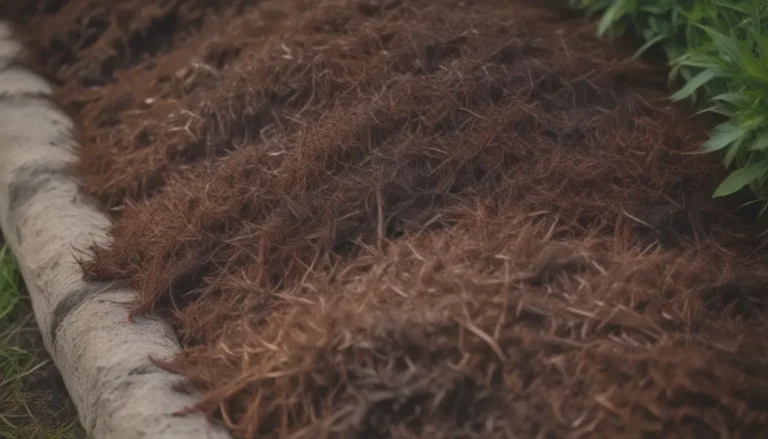Best Cat Repellents to Keep Cats Away: A Comprehensive Guide

Are pesky felines invading your yard or garden? Whether they are curious domestic cats, feral cats, or homeless strays, it can be frustrating to deal with unwanted guests in your outdoor space. Cats have a natural instinct to explore, hunt, and establish territory, which can lead them straight to your property. But fear not! There are humane ways to keep cats out of your yard and garden without causing harm to these furry trespassers.
In this in-depth guide, we will explore the best cat repellents and strategies to deter feline intruders from turning your garden into their personal litter box. From smell-based repellents to physical barriers and even high-tech devices, we’ve got you covered. So, let’s dive in and reclaim your outdoor space from unwanted feline visitors!
Understanding Cat Behavior
Before we delve into the best cat repellents, it’s essential to understand why cats are drawn to your yard in the first place. Cats may wander into your garden for various reasons, including:
- Curiosity
- Mating
- Hunting
- Feeding
- Establishing territory
By gaining insight into their behavior, we can better tailor our repellent strategies to effectively deter cats from frequenting our outdoor areas.
Best Smells to Repel Cats
Cats have a keen sense of smell, with up to 200 million odor receptors compared to humans’ 5 million. By leveraging scents that cats find offensive, we can create a barrier that discourages them from entering our yards. Here are some effective smell-based cat repellents to try:
– Commercial Cat Repellents
Commercial cat repellents like Shake Away Cat Repellent powder utilize the odor barrier method to deter cats. These products mimic the scent of predators that cats fear, such as coyotes, foxes, and bobcats. Simply sprinkle the granular repellent around problem areas to keep cats at bay.
– Offensive Plants
Certain plants emit smells that cats find unpleasant. Plants like Coleus canina, also known as the “scaredy-cat plant,” rue, lavender, and pennyroyal can help deter cats from your yard. Intersperse these plants among your garden beds to create a natural barrier against feline intruders.
– Citrus and Other Pantry Products
Harness the power of citrus fruits, coffee grounds, mothballs, eucalyptus, vinegar, and even cayenne pepper flakes to repel cats. While citrus peels and other pantry items emit scents that repel cats, it’s important to avoid using substances that may cause harm or discomfort to these animals.
Physical Barriers to Repel Cats
In addition to smell-based repellents, physical barriers can be highly effective in keeping cats out of your garden and yard. Here are some practical barriers you can implement:
– Chicken Wire
Place chicken wire on top of soil or mulch across planting beds to deter cats. Cats dislike the texture of chicken wire, making it an effective barrier against digging and prowling. Cut holes in the wire to accommodate your plants and create a seamless barrier.
– Sharp-Edged Mulch
Utilize sharp-edged materials like pine cones, holly cuttings, eggshells, or stone mulch as a natural deterrent for cats. These rough materials discourage cats from digging and defecating in your garden beds, maintaining a barrier that protects your plants.
– Carpet Runner
For areas where cats tend to perch or lounge, lay down a plastic carpet runner with the nub side up. The uncomfortable texture will dissuade cats from settling in these areas, helping to keep them out of your yard.
– Electric Fencing
Consider installing an electric wire fence as a more extreme barrier to keep cats at bay. Opt for a humane version designed to deter small animals like rabbits, providing a gentle shock to discourage intruders from crossing the perimeter.
Water Repellent for Cats
Water can serve as a powerful deterrent for cats, as most felines dislike getting wet. By incorporating water-based repellents, you can create negative associations that discourage cats from entering your property. Here are some water repellent strategies to try:
– Squirt Soakers
When you spot cats in prohibited areas, use a Super Soaker or similar water gun to squirt them gently with water. This method reinforces the notion that cats are unwelcome in your garden beds, encouraging them to seek alternative spaces.
– Water Devices
Invest in water devices like the ScareCrow Sprinkler, which detects intruders and releases a blast of water to deter unwanted guests. These motion-activated devices provide a hands-free solution to keeping cats out of your yard, with minimal effort required on your part.
Sound Barriers to Repel Cats
Cats have a higher hearing range than humans, making sound-based deterrents an effective strategy for keeping them away. Explore these sound-based repellents to deter cats from your outdoor space:
– Electronic Devices
Electronic cat deterrents like Cat Stop emit high-frequency sounds that are inaudible to humans but unbearable for cats. Simply install the device facing your garden or yard, and let the motion sensor detect intruders, triggering the high-frequency sound to scare off unwelcome feline visitors.
– Sound Plus Spray Repellent
For a dual-action repellent, consider the SsssCat! Motion-Activated Dog and Cat Spray. This device combines sound with a non-toxic spray that covers up to 3 feet, providing a comprehensive deterrent against cats in your outdoor area.
– DIY Sound Devices
Get creative with DIY sound deterrents by repurposing items like empty coffee cans filled with marbles or pebbles that create noise when disturbed. You can also use sensitive bells or wind chimes that produce sound when cats cause vibrations, effectively deterring them from your yard.
Making Your Area Unattractive to Cats
In addition to using repellents and barriers, maintaining a clean and clutter-free outdoor space can help reduce visits from cats. By following these tips, you can make your yard less appealing to wandering felines:
- Don’t feed pets outside: Avoid leaving pet food outdoors, as it can attract stray cats.
- Keep trash bins secure: Secure your trash bins to prevent cats from scavenging for food.
- Wash urine spray quickly: Clean up any cat urine promptly to deter repeat visits.
- Keep critters away: Address other pest issues that may be attracting cats to your yard.
- Board up holes: Seal any openings or hideaways that cats may use for shelter.
- Keep bird feeders out of reach: Bird feeders can attract cats, so place them in elevated positions to deter feline visitors.
Additional Resources on Cat Deterrence
For further insights on deterring cats from your garden and yard, consider exploring these resources:
- Why Cats Sniff Rear Ends: Discover the fascinating behavior of cats and why they engage in scent-based communication.
- How to Keep Frustrating Felines out of the Garden: Learn practical tips and strategies for preventing cats from disrupting your garden.
- An Informed Approach to Animal “Pests” in the Garden: Gain valuable insights from master gardeners on managing animal pests, including cats, in your garden.
In conclusion, keeping cats out of your yard and garden requires a multifaceted approach that combines smell-based repellents, physical barriers, water deterrents, and sound-based devices. By implementing these strategies and maintaining a clean outdoor space, you can create an environment that is unappealing to feline intruders. Remember to rotate your repellent tactics regularly and stay vigilant in deterring cats from your property. With the right tools and knowledge, you can enjoy a cat-free outdoor space that is both inviting and peaceful.





